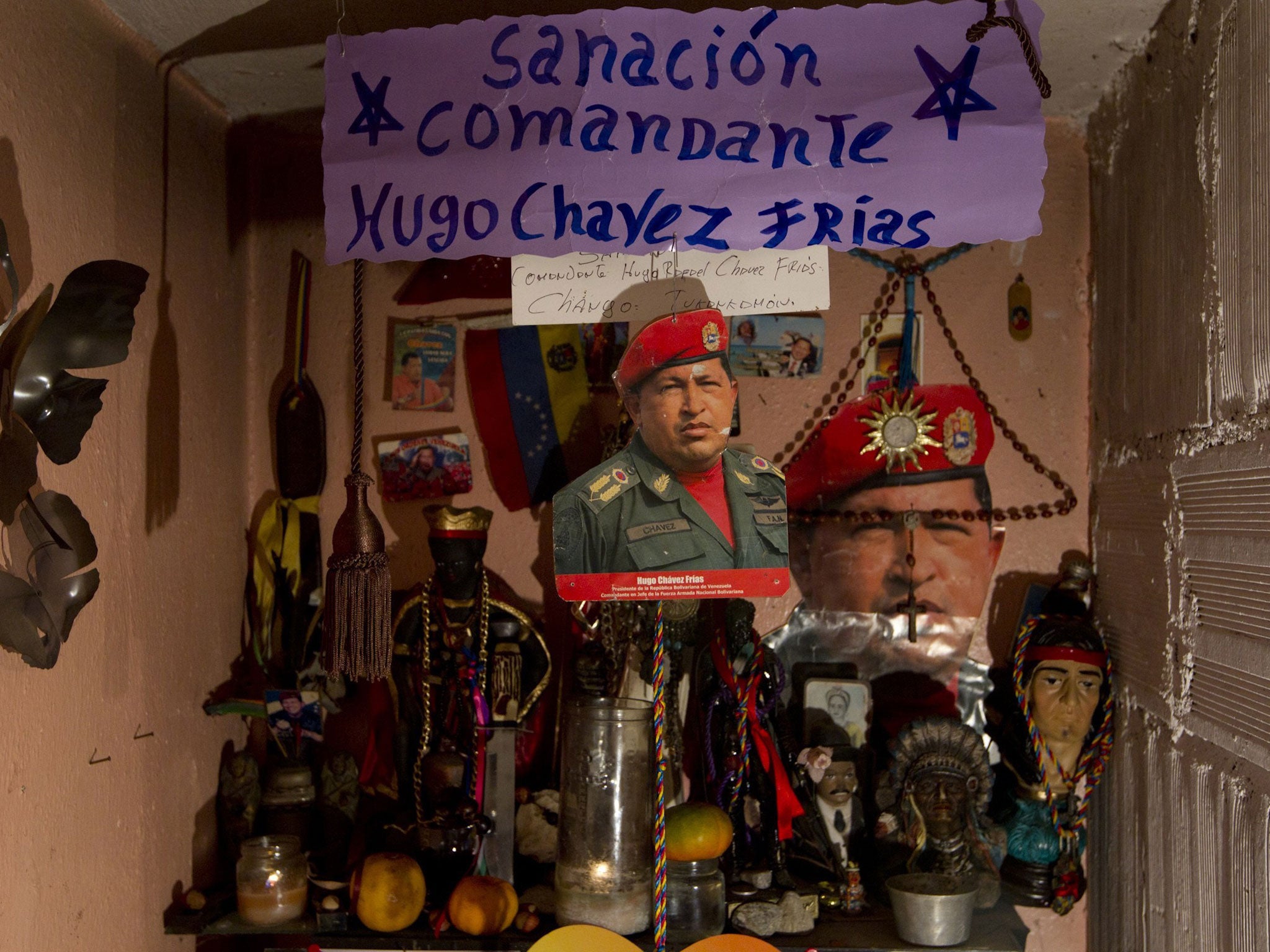Your support helps us to tell the story
From reproductive rights to climate change to Big Tech, The Independent is on the ground when the story is developing. Whether it's investigating the financials of Elon Musk's pro-Trump PAC or producing our latest documentary, 'The A Word', which shines a light on the American women fighting for reproductive rights, we know how important it is to parse out the facts from the messaging.
At such a critical moment in US history, we need reporters on the ground. Your donation allows us to keep sending journalists to speak to both sides of the story.
The Independent is trusted by Americans across the entire political spectrum. And unlike many other quality news outlets, we choose not to lock Americans out of our reporting and analysis with paywalls. We believe quality journalism should be available to everyone, paid for by those who can afford it.
Your support makes all the difference.Venezuelan lawmakers re-elected a staunch ally of Hugo Chavez to head the National Assembly on Saturday, putting him in line to be a caretaker president if the Socialist leader does not recover from cancer surgery.
By choosing the incumbent, Diosdado Cabello, the "Chavista"-dominated legislature cemented the combative ex-soldier's position as the third most powerful figure in the government, after Mr Chavez and Vice-President Nicolas Maduro.
"As a patriot... I swear to be supremely loyal in everything I do, to defend the fatherland, its institutions, and this beautiful revolution led by our comandante, Hugo Chavez," Mr Cabello said as he took the oath.
He had earlier warned opposition politicians against attempting to use the National Assembly to "conspire" against the people, saying they would be "destroyed" if they tried.
Thousands of the President's supporters gathered outside parliament hours before the vote, many chanting: "We are all Chavez! Our comandante will be well! He will return!"
If Mr Chavez had to step down, or died, Mr Cabello would take over the running of the country as the National Assembly chief, and a new election would be organised within 30 days. Mr Chavez's heir-apparent, Mr Maduro, would be the ruling Socialist Party candidate.
President Chavez, who was diagnosed with an undisclosed form of cancer in his pelvic area in mid-2011, has not been seen in public nor heard from in more than three weeks.
Officials say the 58-year-old has suffered multiple complications since surgery on 11 December, including unexpected bleeding and severe respiratory problems.
Late on Friday, Mr Maduro gave the clearest indication yet that the government was preparing to delay Hugo Chavez's inauguration for a new six-year term scheduled for Thursday, saying the ceremony was a "formality". The opposition says Mr Chavez's absence would be the latest sign that he is no longer fit to govern.
Brandishing a copy of the constitution after his win in the assembly, Mr Cabello slammed opposition leaders for accusing the government of employing a "twisted reading" of the charter, while the opposition sat stony-faced.
"Get this into your heads: Hugo Chavez was elected President and he will continue to be President beyond 10 January. No one should have any doubt ... this is the constitutional route," he said, as fellow Socialist Party lawmakers cheered.
Last year, Mr Chavez staged what appeared to be a remarkable comeback from his disease to be re-elected in October, despite being weakened by radiation therapy. He returned to Cuba for more treatment within weeks of his victory.
Should the President have to step down after 14 years in office, a new vote would probably pit Mr Maduro, a 50-year-old former bus driver and union leader, against the opposition leader, Henrique Capriles, the 40-year-old governor of Miranda state. Mr Capriles lost to Mr Chavez in October's presidential election.
"I don't think Maduro would last many rounds in a presidential race. He's not fit for the responsibility they have given him," Mr Capriles said, after the Vice-President's appearance on state television.
Mr Chavez's condition is being watched by allies around Latin America, who have benefited from his oil-funded generosity, as well as by investors attracted by Venezuela's lucrative and widely traded debt.
The country boasts the world's biggest crude reserves. Despite the huge political upheaval that Mr Chavez's exit would cause, the oil industry is not likely to be affected much in the short term, with an extension of "Chavismo" keeping most projects on track.

Join our commenting forum
Join thought-provoking conversations, follow other Independent readers and see their replies
Comments